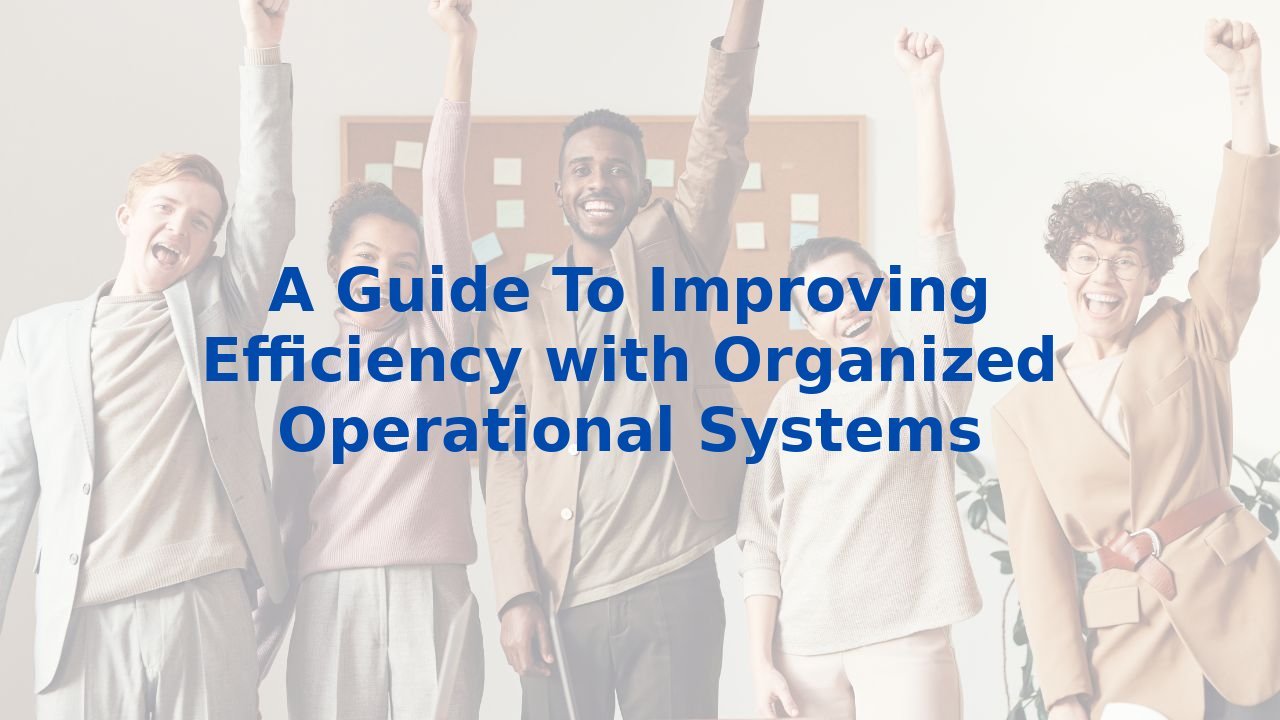A Guide To Improving Efficiency with Organized Operational Systems
A Guide To Improving Efficiency with Organized Operational Systems
The Importance of Operational Systems
In the fast-paced world of business, the efficiency of your operational systems is key to maintaining a competitive edge. Structured processes not only streamline workflows but also ensure that resources are utilized effectively, reducing waste and minimizing errors. The integration of organized operational systems leads to improved employee morale and greater customer satisfaction, as teams can focus more on their core tasks rather than getting bogged down by inefficiencies.
Operational Processes and Their Enhancement through AI
At the heart of every successful organization lies a series of well-defined operational processes. These include areas such as project management, inventory control, customer relationship management, and more. But how do we elevate these processes to new heights? Enter Artificial Intelligence (AI).
AI technologies are no longer just the stuff of science fiction—they're viable tools that can revolutionize the way businesses operate. From automating routine tasks to providing insightful data analytics, AI introduces a transformative approach to operational efficiency. Here’s how AI can enhance key operational processes:
1. Automating Routine Tasks
One of the most immediate benefits of AI is its ability to automate repetitive, mundane tasks. By taking over these responsibilities, AI frees up valuable time for employees to focus on strategic initiatives and creative problem-solving. This leads to increased productivity and a more engaged workforce.
“By embracing AI, businesses are not just keeping up; they are accelerating their growth and innovation.”
2. Data Analysis for Informed Decision Making
In the modern business landscape, data is the currency of the future. However, vast amounts of data can often lead to overwhelm rather than empowerment. AI assists by analyzing large datasets, identifying trends and insights that might go unnoticed by the human eye. This enables teams to make more informed decisions faster, driving efficiency across the board.
3. Enhancing Customer Experiences
Every organization strives to provide its customers with the best experience possible. AI can analyze customer feedback in real-time, allowing businesses to tailor their services and communications with precision. By understanding customer preferences and behaviors, organizations can proactively address issues and enhance overall satisfaction.
4. Predictive Maintenance and Inventory Management
In industries reliant on machinery and supply chains, AI provides predictive maintenance capabilities. By analyzing usage patterns, AI helps to anticipate equipment failures before they occur, thus minimizing downtime. Additionally, predictive analytics can optimize inventory levels, ensuring that businesses aren’t overstocked or understocked, which can both be costly.
The Role of Employee Training in AI Adoption
While AI offers immense potential, its effectiveness largely depends on the people behind it. Training your employees for AI is not just a good idea; it’s essential. Well-trained employees can leverage AI tools to their full potential, transforming how work is accomplished within the organization.
Investing in AI training equips your workforce with the skills to handle new technologies, enhancing overall productivity. A culture of continuous learning ensures that employees remain adaptable in a rapidly changing landscape, ready to embrace opportunities as they arise. For organizations looking to implement an extensive AI program, consider AI training and certification for your entire organization that can maximize the machine's capabilities through human expertise.
Conclusion: A Future Driven by Efficiency
The integration of organized operational systems and AI technology creates a powerful synergy that propels businesses into the future. By streamlining processes, enhancing decision-making, and creating meaningful customer experiences, efficiency becomes not just a goal but a strategic advantage.
As organizations continue to evolve, those who recognize the importance of training their employees in AI processes will likely lead the charge into unprecedented realms of efficiency and productivity. To explore comprehensive AI training programs, visit here, and invest in the future of your business today.



